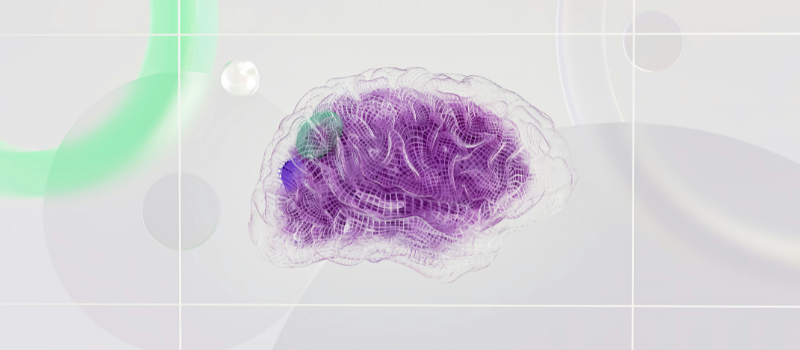You've been thinking your entire life, but nobody ever taught you how to think about your thinking.
That's metacognition, and it's the difference between smart people and people who know how to use their smarts.
And, believe it or not, that’s a huge difference.
Most people dive into tasks headfirst, hope their brain figures it out, and wonder why they keep hitting the same walls. They study harder instead of smarter. They repeat mistakes instead of learning from them. They trust their gut instead of checking their understanding.
You can imagine how well that goes.
People who practice metacognitive strategies do it different.
They step back and observe their own thinking process. They catch themselves (on purpose) making errors. They adjust their approach when something isn't working. They know when they know something…and when they just think they do.
This isn't about being smarter. It's about being more aware of how your brain actually works and using that awareness to think better.
What Are Metacognitive Strategies?
Metacognitive strategies are techniques that help you monitor, control, and evaluate your own thinking processes. It’s your brain's built-in quality control system.
Metacognition literally means "thinking about thinking." It's your ability to step outside your own head and observe what's happening in there.
- Are you actually understanding this material, or just skimming?
- Is your current approach working, or are you banging your head against a wall?
- Do you really know this, or does it just feel familiar?
Most people think on autopilot. They read without checking comprehension. They solve problems without monitoring their approach. They study for hours without knowing if they're actually learning anything.
It’s natural, it’s easy, and it’s also ineffective.
Metacognitive strategies take the opposite approach. They give you specific techniques to catch errors, adjust your approach mid-task, and honestly check your own understanding.
Research shows that students who use metacognitive strategies outperform students who don't. Being smart doesn't automatically make you good at learning, problem-solving, or critical thinking. It just means you have more horsepower.
Raw intelligence is like having a powerful engine. Metacognitive strategies are like knowing how to drive.
Intelligence gets you in the game. Metacognition helps you win it.
13+ Metacognitive Strategies That Actually Work

The strategies below help you plan your thinking before you start, monitor what's happening while you work, evaluate your results, and regulate your approach when (not if) things go sideways. Master even a few of these, and you'll start catching mistakes you never noticed before.
Here are proven ways to sharpen your thinking, reading, and comprehension:
- Memory Mining — Activate what you already know before learning something new
- Understanding Checks — Test if you actually get it or just think you do
- Attention Alerts — Notice when your mind starts wandering
- Mistake Detection — Catch errors before they become bigger problems
- The Help Signal — Know when to ask for assistance (and how)
- Knowledge Transfer — Apply what you learn in new situations
- Brain Budgeting — Allocate mental energy based on task difficulty
- Strategy Choice — Pick the right thinking approach for each situation
- Task Setting — Break down complex goals into manageable pieces
- Mental Energy Management — Adjust effort based on what the task demands
- Progress Monitoring — Track how you're doing against your plan
- Self-Questioning — Challenge your own assumptions and reasoning
- Mental Modeling — Build frameworks for understanding complex information
1. Memory Mining
Tap into what you already know before learning something new.
Spend a few minutes digging up related knowledge you already have before diving into new materials. Ask yourself: "What do I already know about this topic? How does this connect to things I've learned before?"
Don’t let anyone tell you this is procrastination, because it’s not. It's preparation. When you wake up prior knowledge first, your brain has better hooks to attach new information to.
Research shows that students who spend just a few minutes mining their memory before learning retain much more than those who jump straight in.
2. Understanding Checks
Test if you actually get it or just think you do.
Stop every few minutes and ask yourself: "Could I explain this to someone else right now?"
Then, actually try explaining it out loud (yes, you'll feel weird at first). If you stumble, you've found a gap in your understanding. And that’s a good thing. A great thing, actually.
This catches the illusion of knowledge — that feeling where information seems familiar so you assume you know it. Real understanding means you can reconstruct the information from memory, and that’s more than just recognizing it when you see it again.
3. Attention Alerts
Notice when your mind starts wandering.
Train yourself to catch attention drift in real-time. Set random alerts on your phone every 10-15 minutes that ask "What were you just thinking about?" If it wasn't related to your task, you've caught your mind wandering.
Now, that’s not a bad thing. Mind drift happens, and it’s part of the process.
The goal isn't perfect focus — it's awareness.
Once you notice attention drifting, you can gently redirect it. Most people spend hours "working" without realizing their brain checked out after the first 10 minutes. Attention alerts help you stay honest about where your mind actually is (and that’s insanely important for things like deep work).
4. Mistake Detection

Catch errors before they become bigger problems.
Build the habit of actively looking for your own mistakes instead of just hoping you got it right. After solving a problem or completing a task, ask yourself: "What could I have gotten wrong here? Where are the likely error points?"
This is proactive quality control. The way it should be.
- Check your work with fresh eyes
- Use different methods to verify answers (ChatGPT, friends, subreddits)
- Work backwards from your solution
Research shows that people who actively hunt for their own errors catch (and fix) more mistakes than those who just review passively.
“Errors are a rich source of learning, but only when learners recognize and reflect on them…We learn more from mistakes when we actively try to catch and understand them.” – Janet Metcalfe
5. The Help Signal
Know when to ask for help (and how).
Most people either ask for help too early (learned helplessness) or too late (stubborn pride). The sweet spot is when you've genuinely tried multiple approaches but hit a wall.
Do the work and find specifically what you're stuck on: "I understand X and Y, but I can't figure out how Z connects to them." This shows you've done the work and helps others give you targeted assistance instead of starting from scratch.
Good help-seeking is a skill (not a weakness).
6. Knowledge Transfer
Apply what you learn in new situations.
After mastering something in one context, actively look for ways to use it elsewhere.
Ask yourself: "Where else could this principle apply? What other problems could this solve?"
Practice explaining concepts using different examples than the ones you learned with. If you can’t, then you probably don’t fully understand the concept yet.
Transfer doesn't happen automatically, either. You have to deliberately build bridges between what you know and new situations.
This is what separates people who just collect information from those who actually develop wisdom and expertise.
7. Brain Budgeting

Allocate mental energy based on task difficulty.
Not all tasks deserve the same mental effort, and you only have so much capacity. Before starting work, decide how much cognitive energy each task will require and plan accordingly.
Save your peak mental hours for the most demanding work (mornings after coffee and email-checking). Do routine tasks when your brain is tired (after lunch time or just before work ends).
8. Strategy Choice
Different problems require different mental tools. Some require you to simply memorize, while others might need you to analyze, create, or apply. Your approach to each of these should be different:
- Use active recall for memorization
- Break complex problems into smaller parts
- Brainstorm multiple solutions for creative challenges
Most people use the same approach for everything (usually the first one that comes to mind), but strategic thinkers match the method to the task.
9. Task Setting
Break down big goals into digestible chunks.
Spend time breaking down your projects into super-specific, actionable steps. That might be: research key points, create outlines, write introductions, etc.
Each piece should be small enough that you know exactly how to start and when you're done.
This prevents procrastination and helps you track real progress. Your brain handles a series of small, clear tasks much better than one giant, vague goal.
10. Mental Energy Management
Learn to shift mental gears deliberately. Some tasks need intense focus, others just need steady attention, and some can run on mental autopilot. And it’s best to batch together similar ones to avoid wasting time with task switching.
Everyday, you’ll likely do a healthy mix of all of those…but if you mismanage your energy, you’ll burn out on the simple tasks and be depleted before you actually need your brain.
Don't burn your high-octane focus on routine emails, and don't try to solve complex problems when you're mentally tired.
11. Progress Monitoring
Set regular check-in points to see whether you're on track. This could be based on quantitative metrics or just answers to your own qualitative questions.
This isn't about perfectly sticking to your timelines. It’s really just about catching problems early and tracking your progress (or lack thereof).
If you're behind schedule, figure out why. If you're ahead, find what's working so you can repeat it. Most people only realize they're off track when it's too late to fix it.
12. Self-Questioning

Challenge your own assumptions and reasoning.
Become your own devil's advocate. Ask yourself:
- How do I know this is true?
- What evidence supports this?
- What would someone who disagrees say?"
Question your sources, your logic, and your conclusions. Look for gaps in your reasoning or places where you might be fooling yourself. Good thinkers argue with themselves before others do.
13. Mental Modeling
Build frameworks for understanding complex information.
Instead of just collecting facts, create mental structures that organize information. Draw diagrams, create categories, or build hierarchies that help you see relationships between concepts.
Mental models turn scattered information into organized knowledge that you can actually use.
You don’t want to just absorb information — you want to actually make sense of it (and apply it).
Start Thinking About Your Thinking
You know, reading about metacognition is just regular cognition. The real results come from actually using these metacognitive strategies.
The question isn't whether these work — research proves they do. The question is whether you'll actually use them or just add this to your mental collection of "things I should probably do someday."
Pick one strategy. Use it once today. Just once. See what happens when you start paying attention to how you think instead of just what you think about.
Subscribe to Hold That Thought for a regular dose of thinking about thinking.
.png)

.png)
